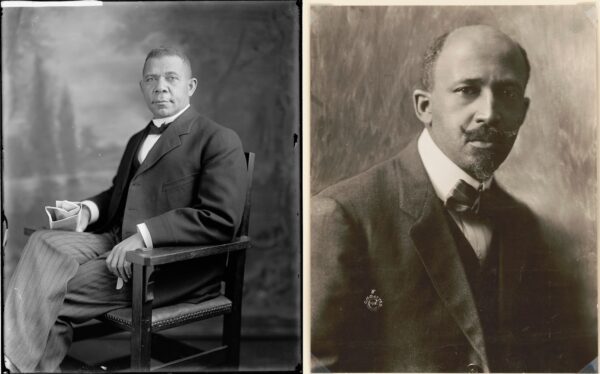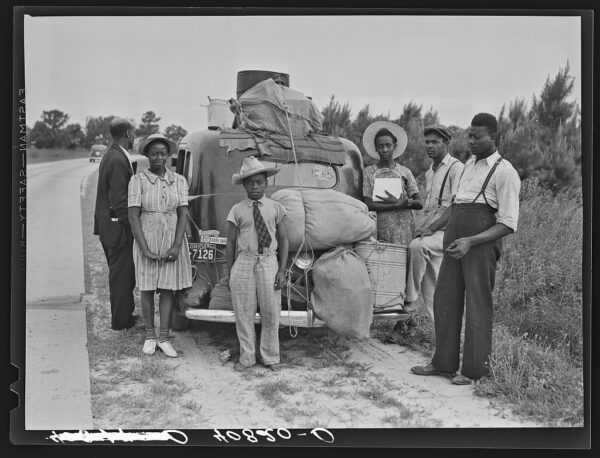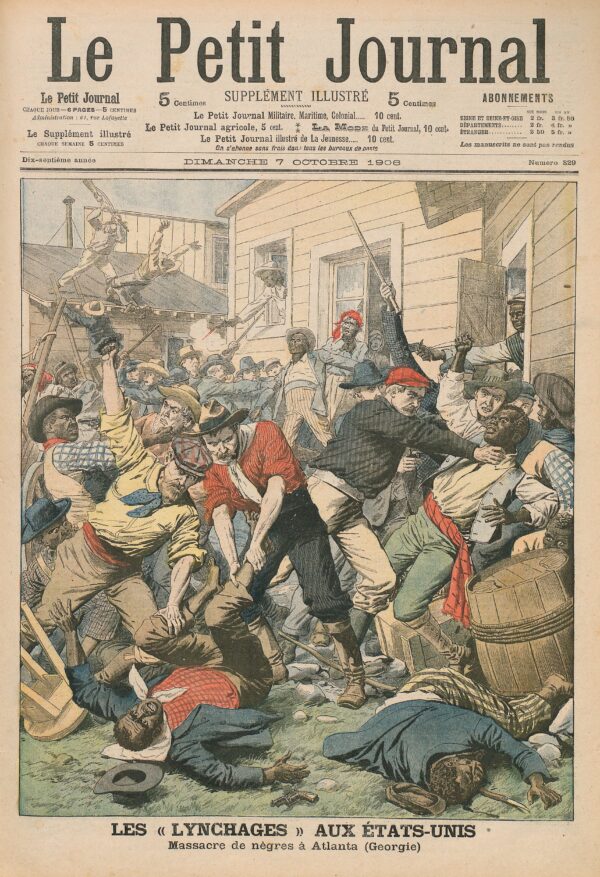
Lesson Plan
Voices of Change: Washington, Du Bois, and the Fight for Black American Progress
Explore the ideological debates between Booker T. Washington and W.E.B. Du Bois then lead students in a debate of their own.
About this lesson
Following the Civil War, newly freed Black Americans desired and, in many instances, demanded social and economic progress. The best way to achieve such progress, however, was a topic of much debate. Two leaders – Booker Taliaferro Washington and William Edward Burghardt (W.E.B.) Du Bois – rose to prominence for their work both within and beyond the Black community. While both were adamant about enhancing the lives of Black people, their ideologies were very different. Washington promoted industrial education, respectability, and compromise with white leaders as the road forward for Black Americans. Conversely, Du Bois promoted academic education, a civil rights agenda, and active political engagement as the best strategies for progress. Both leaders influenced countless future activists. Historians and politicos alike continue to debate and dissect their differing ideologies that are recognized as historically significant and presently relevant.
Grade Level
-
Grade Level
Ninth, Tenth, Eleventh, Twelfth
-
Subject
Arts, Social Studies, US History
-
Duration
240 minutes
-
Class Period Structure
Four 60-minute class periods
-
Activities, Background Essay, Biographies, Glossary, Primary Sources, Rubric, Secondary Sources, Timeline
-
At the end of this lesson students will be able to:
- Critically analyze the influence of education on the social progress of groups.
- Compare and contrast Booker T. Washington’s and W. E. B. Du Bois’ ideologies regarding Black American social and economic progress.
-
It will be helpful for students to be familiar with:
- The Civil War
- Reconstruction
- The Progressive Era
-
Georgia
SSUSH13: Evaluate efforts to reform American society and politics in the Progressive Era.
L9-10RHSS6: Compare the point of view of two or more authors for how they treat the same or similar topics, including which details they include and emphasize in their respective accounts.
L11-12RHSS2: Determine a central idea or information of primary and secondary source; provide an accurate summary that makes clear the relationship among the key details and ideas.
L11-12RHSS3: Evaluate various explanations for actions or events and determine which explanation best accords with textual evidence, acknowledging where the text leaves matters uncertain.
L11-12WHST6: Use technology, including the Internet, to produce, publish, and update individual or shared writing products in response to ongoing feedback, including new arguments or information.
Ethnic Studies: Evaluates the contributions African Americans have made to American culture.
Supporting Materials
Glossary
-
Black American Progress
–
The social and economic advancement of Black people in the United States.
-
Industrial Education
–
An educational philosophy that prepared the learner for work in industrial trades.
Sign in
or
create a free account
to access the full lesson plan and more.

